The vestibular nerve, also known as the eighth cranial nerve or the auditory-vestibular nerve, plays a crucial role in the function of the ear. This nerve is responsible for transmitting sensory information from the vestibular system, which is located in the inner ear, to the brain. By doing so, it helps maintain our balance, enables us to perceive changes in our body position, and contributes to our sense of spatial orientation.
Understanding the Vestibular Nerve
To comprehend the function of the vestibular nerve, it is essential to have a basic understanding of its anatomy and the role it plays in the human body.
The vestibular nerve, also known as the eighth cranial nerve, is a crucial component of the vestibulocochlear nerve, which is responsible for transmitting auditory and vestibular information to the brain. While the cochlear nerve deals with hearing, the vestibular nerve focuses on balance and spatial orientation.
Anatomy of the Vestibular Nerve
The vestibular nerve consists of two branches: the superior vestibular nerve and the inferior vestibular nerve. These branches connect the vestibular apparatus, located within the inner ear, to the brainstem and cerebellum.
Within the inner ear, the vestibular nerve receives input from specialized structures called the semicircular canals and the otolith organs. The semicircular canals, three in total, detect rotational movements, while the otolith organs respond to linear movements and changes in head position.
These sensory organs are filled with fluid and contain tiny hair-like structures called stereocilia. When the head moves, the fluid within the semicircular canals and otolith organs moves as well, causing the stereocilia to bend. This bending of the stereocilia triggers electrical signals that are then transmitted along the nerve fibers of the vestibular nerve to the brain.
Once the sensory information reaches the brain, it is processed in various areas, including the vestibular nuclei and different regions of the cerebral cortex. These areas interpret the signals and generate appropriate responses to maintain balance, coordinate eye movements, and provide spatial orientation.
The Role of the Vestibular Nerve in the Human Body
The vestibular nerve serves several important functions in the human body, all of which are vital for our daily activities and overall well-being.
First and foremost, the vestibular nerve plays a primary role in maintaining our balance. It processes the sensory information related to the position and movements of our head and body and sends this information to the brain for interpretation. In response, the brain sends signals to the muscles, enabling us to make the necessary adjustments to maintain our balance and remain upright.
Furthermore, the vestibular nerve contributes to our sense of spatial orientation. It helps us determine our position in relation to gravity and the world around us. This information is crucial in allowing us to navigate our surroundings with precision and accuracy.
In addition to balance and spatial orientation, the vestibular nerve also plays a role in coordinating eye movements. It allows for the smooth and accurate tracking of objects when our head and body are in motion. This coordination is crucial for many activities, such as reading, driving, and playing sports.
Moreover, the vestibular nerve is involved in the regulation of blood pressure and heart rate. It communicates with the autonomic nervous system to help maintain cardiovascular stability.
Furthermore, the vestibular nerve is closely connected to the limbic system, which is responsible for emotions and memory. This connection allows the vestibular system to influence our emotional state and memory formation.
Additionally, the vestibular nerve is involved in the process of spatial learning and navigation. It helps us create mental maps of our environment and aids in the formation of memories related to specific locations.
Overall, the vestibular nerve plays a crucial role in our daily lives, allowing us to maintain balance, navigate our surroundings, coordinate eye movements, regulate cardiovascular functions, and even influence our emotions and memory. Its intricate connection to various parts of the brain highlights its significance in ensuring our overall well-being and quality of life.
The Vestibular System and Balance
As mentioned earlier, the vestibular nerve is integral to our sense of balance. When the vestibular system is functioning properly, we can maintain our equilibrium effortlessly. However, any disruption or dysfunction within the vestibular system can lead to balance problems and associated symptoms.
The vestibular system is a complex network of structures located within the inner ear. It consists of the vestibular organs, which include the utricle, saccule, and semicircular canals. These organs are responsible for detecting changes in head position and movement, providing crucial information to the brain about our spatial orientation.
How the Vestibular Nerve Contributes to Equilibrium
The vestibular nerve plays a fundamental role in the maintenance of equilibrium, which is the state of bodily balance. It sends ongoing sensory input to the brain about the head movements and position in space. This information is then processed and used to generate appropriate motor responses that help keep us balanced.
Imagine walking on a narrow beam or riding a bicycle. It is the vestibular nerve that allows us to make the necessary adjustments to stay upright and prevent falls. Without this sensory input, our ability to maintain balance would be severely compromised.
When there is a mismatch between the information received from the vestibular nerve and other sensory inputs, such as vision or proprioception, balance issues may arise. This mismatch can result from conditions like vestibular neuritis or Meniere’s disease, where the vestibular nerve suffers inflammation or damage, leading to distorted sensory information being sent to the brain.
Vestibular neuritis is an inflammation of the vestibular nerve, often caused by a viral infection. It can result in severe vertigo, a spinning sensation that can be debilitating. Meniere’s disease, on the other hand, is a chronic condition characterized by recurring episodes of vertigo, hearing loss, tinnitus (ringing in the ears), and a feeling of fullness in the affected ear.
The Connection Between the Vestibular Nerve and Dizziness
Dizziness is a common symptom of vestibular nerve dysfunction. It can manifest as a sensation of spinning or a feeling of lightheadedness. When the vestibular nerve is not functioning properly or is damaged, it can lead to disrupted signals being sent to the brain, causing these unpleasant sensations.
In addition to dizziness, vestibular nerve dysfunction can also cause other symptoms such as nausea, unsteadiness, and difficulty concentrating. These symptoms can significantly impact a person’s quality of life, making it challenging to perform daily activities and even affecting their emotional well-being.
If you experience persistent or recurrent dizziness, it is important to consult with a healthcare professional. They can conduct a thorough evaluation to determine the underlying cause and provide appropriate guidance and treatment options.
In conclusion, the vestibular nerve and the vestibular system as a whole play a crucial role in maintaining our balance and spatial orientation. When this system is disrupted, it can lead to various balance problems and associated symptoms. Understanding the connection between the vestibular nerve and equilibrium is essential in diagnosing and managing conditions that affect the vestibular system.
The Vestibular Nerve and Hearing
While the primary function of the vestibular nerve is related to balance and spatial orientation, it also has some connection to the process of hearing.
The vestibular nerve, also known as the eighth cranial nerve or the vestibulocochlear nerve, is a crucial component of the auditory system. It works alongside the cochlear nerve to transmit auditory information from the inner ear to the brain. While the cochlear nerve primarily carries sound-related signals, the vestibular nerve is partly responsible for transmitting low-frequency sounds.
When sound waves enter the ear, they travel through the ear canal and cause the eardrum to vibrate. These vibrations are then transmitted to the three tiny bones in the middle ear: the malleus, incus, and stapes. The movement of these bones amplifies the sound and sends it to the cochlea, a spiral-shaped structure in the inner ear.
Within the cochlea, there are specialized hair cells that convert the mechanical vibrations of sound into electrical signals. These electrical signals are then picked up by the cochlear nerve and transmitted to the brain for processing and interpretation. The vestibular nerve, located adjacent to the cochlear nerve, plays a role in this transmission process.
It is important to note, however, that any significant hearing loss or impairment is more likely to be attributed to dysfunction of the cochlear nerve rather than the vestibular nerve. The cochlear nerve is primarily responsible for transmitting the full range of sound frequencies, while the vestibular nerve’s involvement is limited to low-frequency sounds.
If you are experiencing hearing difficulties, it is advisable to consult with an audiologist or an ear, nose, and throat specialist (otolaryngologist). These healthcare professionals specialize in diagnosing and treating hearing disorders and can provide appropriate recommendations and interventions based on your specific needs.
The Relationship Between the Vestibular Nerve and Tinnitus
Tinnitus, a condition characterized by the perception of sound in the absence of an external source, can occasionally be associated with vestibular nerve disorders. The vestibular nerve’s proximity to the cochlear nerve and its involvement in transmitting auditory signals can contribute to certain cases of tinnitus.
When the vestibular nerve is affected by a disorder or damage, it can disrupt the normal transmission of auditory signals to the brain. This disruption can result in abnormal neural activity, leading to the perception of phantom sounds, such as ringing, buzzing, or hissing.
If you are experiencing bothersome tinnitus, it is crucial to seek medical advice from a healthcare professional specializing in audiology or otolaryngology. These specialists can help evaluate your symptoms and provide appropriate management strategies based on your specific situation.
Treatment options for tinnitus may include sound therapy, which uses external sounds to mask or distract from the phantom noises, or cognitive behavioral therapy, which helps individuals develop coping strategies and reduce the emotional distress associated with tinnitus.
In some cases, addressing the underlying cause of the vestibular nerve disorder, such as ear infections, Meniere’s disease, or acoustic neuroma, may alleviate tinnitus symptoms. However, it is important to note that tinnitus can be a complex condition with various contributing factors, and the management approach may vary from person to person.
By understanding the role of the vestibular nerve in hearing and its potential connection to tinnitus, individuals can seek appropriate medical attention and explore treatment options that can improve their overall auditory well-being.
Disorders Related to the Vestibular Nerve
Disorders affecting the vestibular nerve can significantly impact a person’s quality of life. The vestibular nerve, also known as the eighth cranial nerve, plays a crucial role in maintaining balance and spatial orientation. When this nerve is disrupted, it can lead to a variety of symptoms that can be both distressing and debilitating.
Vestibular nerve disorders can give rise to a range of symptoms, including vertigo, dizziness, imbalance, nausea, and even hearing difficulties. Vertigo, in particular, is a common symptom experienced by individuals with vestibular nerve disorders. It is characterized by a spinning sensation, as if the world around them is in constant motion. This can be accompanied by feelings of lightheadedness and disorientation.
Imbalance is another symptom that individuals with vestibular nerve disorders may experience. This can manifest as difficulty walking in a straight line, unsteadiness, or a feeling of being pulled to one side. These symptoms can greatly impact a person’s ability to perform daily activities and may even lead to falls and injuries.
In addition to physical symptoms, vestibular nerve disorders can also have a significant impact on a person’s emotional well-being. The constant feelings of dizziness and imbalance can lead to anxiety, depression, and social isolation. It is important for individuals with these disorders to seek proper diagnosis and treatment to improve their overall quality of life.
It is crucial to note that these symptoms can also arise from other medical conditions. Therefore, it is wise to consult with a healthcare professional who specializes in otolaryngology or neurotology for an accurate diagnosis. These specialists have the expertise to differentiate between vestibular nerve disorders and other conditions that may present with similar symptoms.
Diagnosis and Treatment of Vestibular Nerve Disorders
The diagnosis of vestibular nerve disorders often involves a comprehensive assessment of the patient’s medical history, a thorough physical examination, and specialized tests. These tests may include videonystagmography, vestibular evoked myogenic potentials, and electronystagmography, among others.
Videonystagmography is a test that measures eye movements to evaluate the function of the vestibular system. It can help identify abnormalities in the vestibular nerve and determine the underlying cause of the symptoms. Vestibular evoked myogenic potentials, on the other hand, assess the responses of the muscles in the neck and eyes to sound stimuli. This test can provide valuable information about the integrity of the vestibular nerve and its connections.
Once a proper diagnosis is made, treatment options can be explored. Vestibular rehabilitation therapy is a common approach used to manage symptoms and improve balance. This therapy involves exercises and maneuvers that aim to retrain the brain to compensate for the vestibular dysfunction. It can be highly effective in reducing dizziness and improving overall stability.
In some cases, medications may be prescribed to alleviate symptoms such as vertigo and nausea. These medications can help manage the acute episodes of dizziness and provide relief to individuals with vestibular nerve disorders. However, it is important to note that medications alone do not address the underlying cause of the disorder and should be used in conjunction with other treatment modalities.
In rare cases where conservative treatments are ineffective, surgical interventions may be considered. These procedures aim to restore or bypass the damaged vestibular nerve, depending on the specific condition. Surgical options include vestibular neurectomy, labyrinthectomy, and cochlear implantation. These procedures are typically reserved for severe cases or when other treatment options have been exhausted.
Treatment plans should be tailored to each individual’s circumstances, taking into account the severity of symptoms, the underlying cause of the disorder, and the person’s overall health. Consultation with a medical professional who specializes in vestibular disorders is crucial to determine the most appropriate course of action.
In conclusion, disorders related to the vestibular nerve can have a profound impact on a person’s life. Recognizing the symptoms, seeking proper diagnosis, and exploring treatment options are essential steps in managing these disorders and improving overall well-being.
The Impact of Vestibular Nerve Damage
Vestibular nerve damage can have profound effects on an individual’s daily life and overall well-being. Coping with these effects requires a combination of adaptation, support, and medical intervention.
Causes of Vestibular Nerve Damage
Vestibular nerve damage can stem from various factors, including infections, trauma to the head or inner ear, certain medications, autoimmune diseases, and age-related degeneration. Understanding the underlying cause of the damage is crucial in determining the most appropriate treatment and management strategies.
Coping with Vestibular Nerve Damage and Its Effects
Coping with the effects of vestibular nerve damage often requires a multidisciplinary approach. Vestibular rehabilitation therapy, which involves exercises and techniques to encourage compensatory mechanisms and minimize symptoms, can be beneficial in many cases. Additionally, support from healthcare professionals, family, and friends can play a significant role in coping with the challenges associated with vestibular nerve damage.
If you or a loved one are experiencing the effects of vestibular nerve damage, it is important to seek guidance and support from healthcare professionals specializing in vestibular disorders. They can provide professional advice and create a comprehensive plan tailored to your needs.
The Future of Vestibular Nerve Research
Ongoing research in the field of vestibular science is continually expanding our understanding of the vestibular nerve and its associated functions. These advancements hold the promise of improving diagnosis, treatment, and management strategies for individuals with vestibular nerve disorders.
Current Research on the Vestibular Nerve
Scientists and researchers are actively investigating various aspects of the vestibular nerve. This includes studies on the mechanisms underlying vestibular nerve function, the pathophysiology of vestibular disorders, and the development of innovative diagnostic tools and treatment modalities.
Potential Breakthroughs in Vestibular Nerve Treatment
With ongoing research, there is hope for breakthroughs in the treatment of vestibular nerve disorders. Innovative approaches, such as gene therapy and targeted drug delivery, are being explored to specifically address vestibular nerve damage and restore its normal functions.
It is important to keep in mind, however, that these breakthroughs are still in the realm of ongoing research and may take time before they become available for widespread use. In the meantime, consultation with a healthcare professional specializing in vestibular disorders is crucial to explore available treatment options and develop an individualized plan.
In conclusion, the vestibular nerve plays a crucial role in the function of the ear, contributing to our sense of balance, spatial orientation, and coordination. Disorders affecting the vestibular nerve can significantly impact a person’s daily life, and seeking proper diagnosis and treatment is essential. Ongoing research in the field holds promise for future advancements in the understanding and management of vestibular nerve disorders. If you are experiencing symptoms related to vestibular nerve dysfunction, it is advisable to consult with a healthcare professional who specializes in otolaryngology or neurotology to receive appropriate guidance and care.




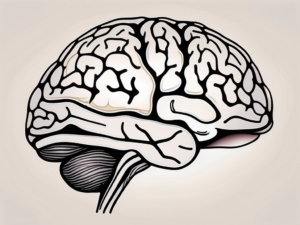
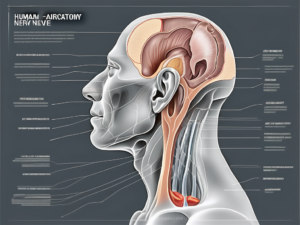
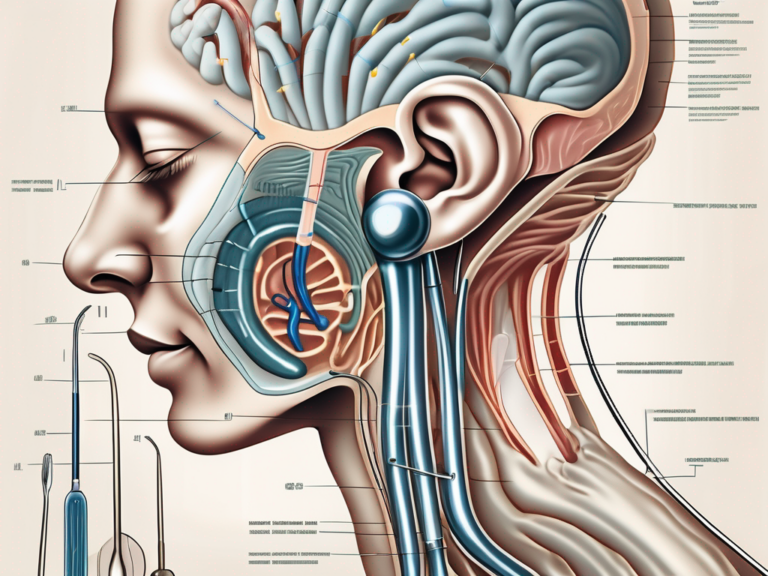
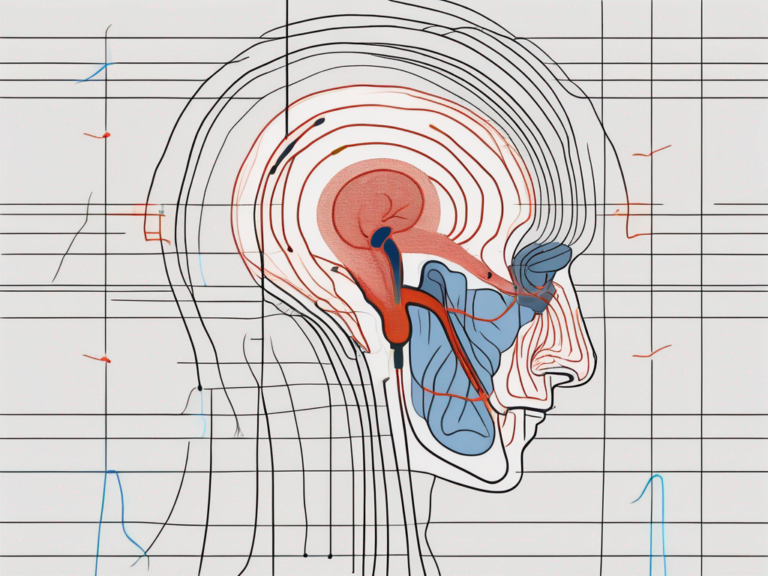
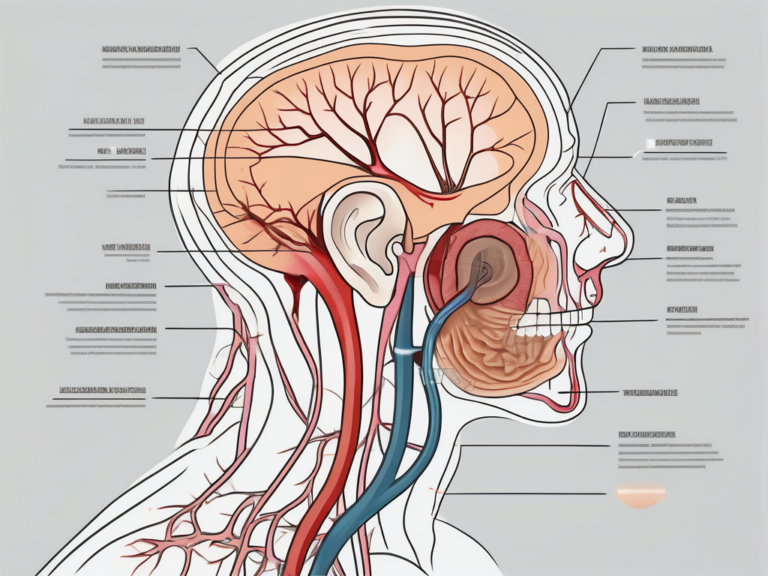
+ There are no comments
Add yours